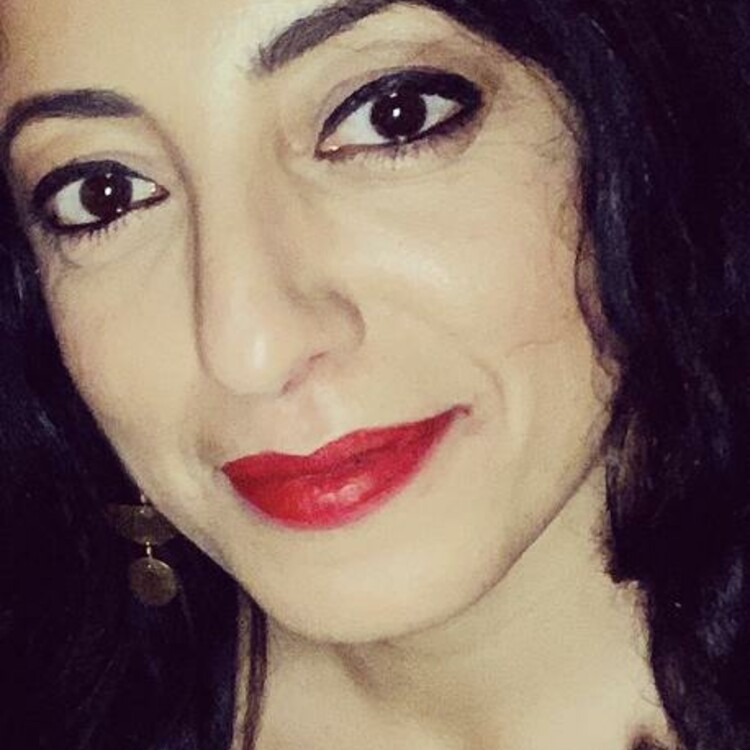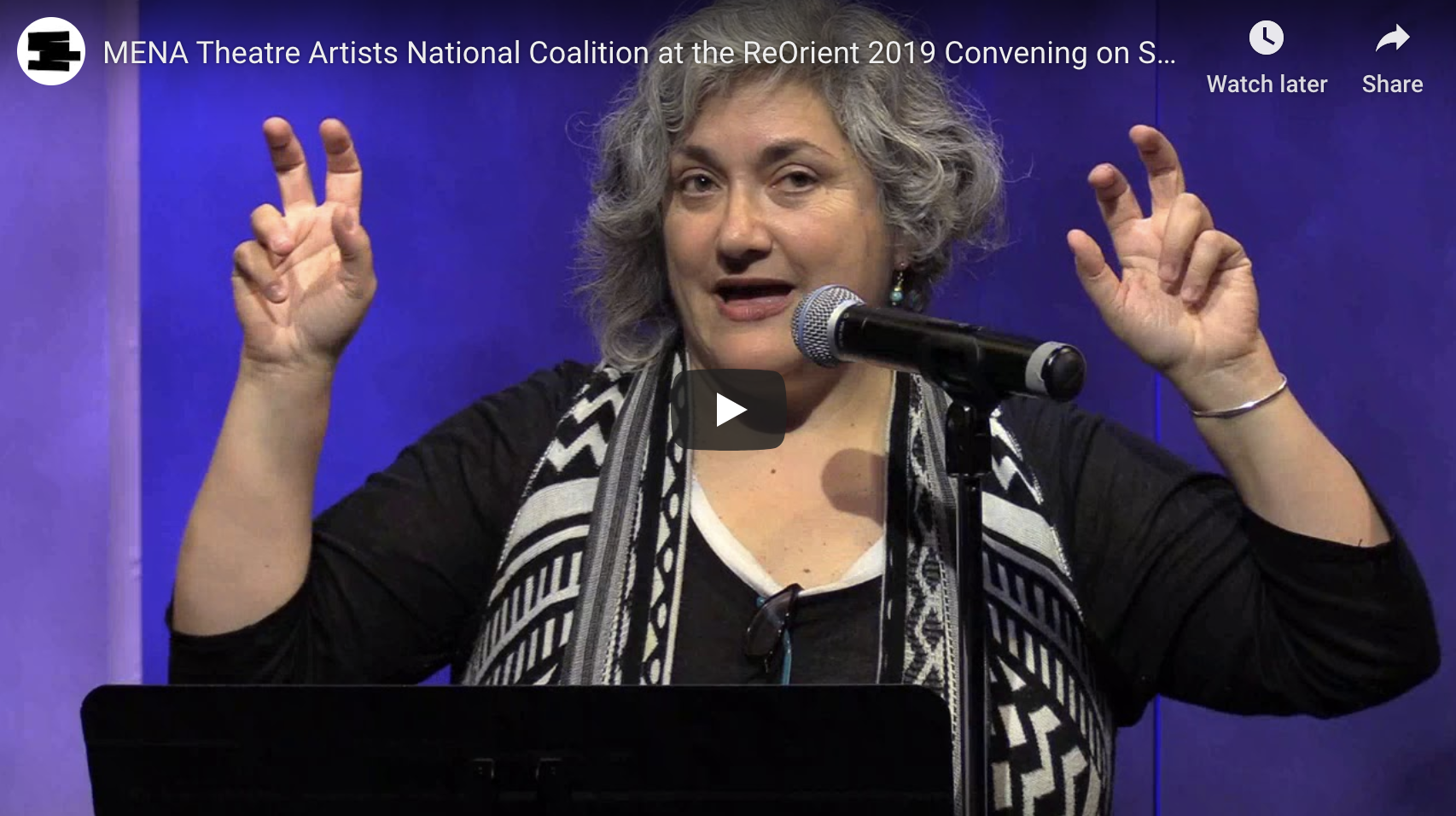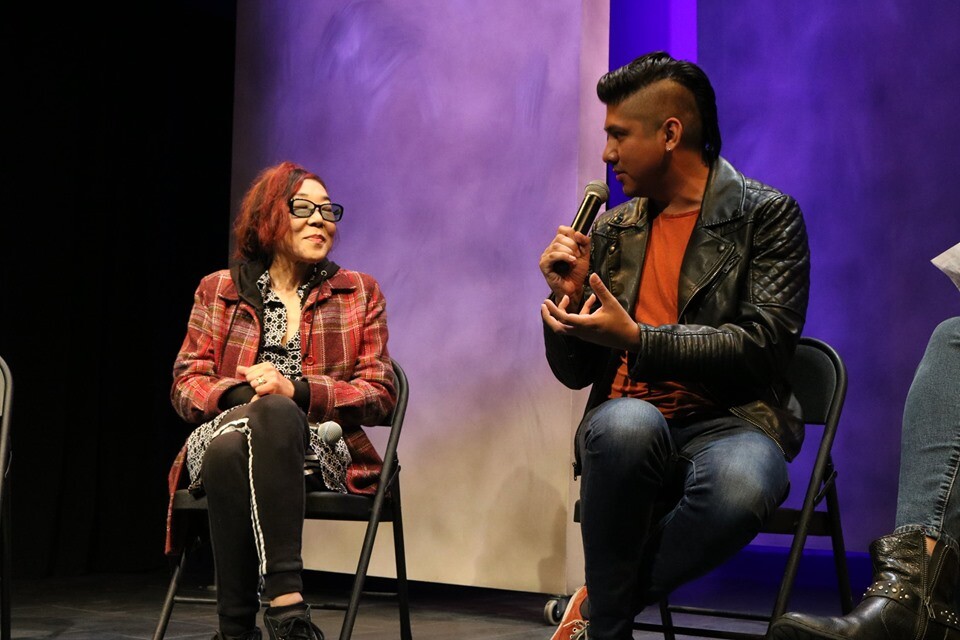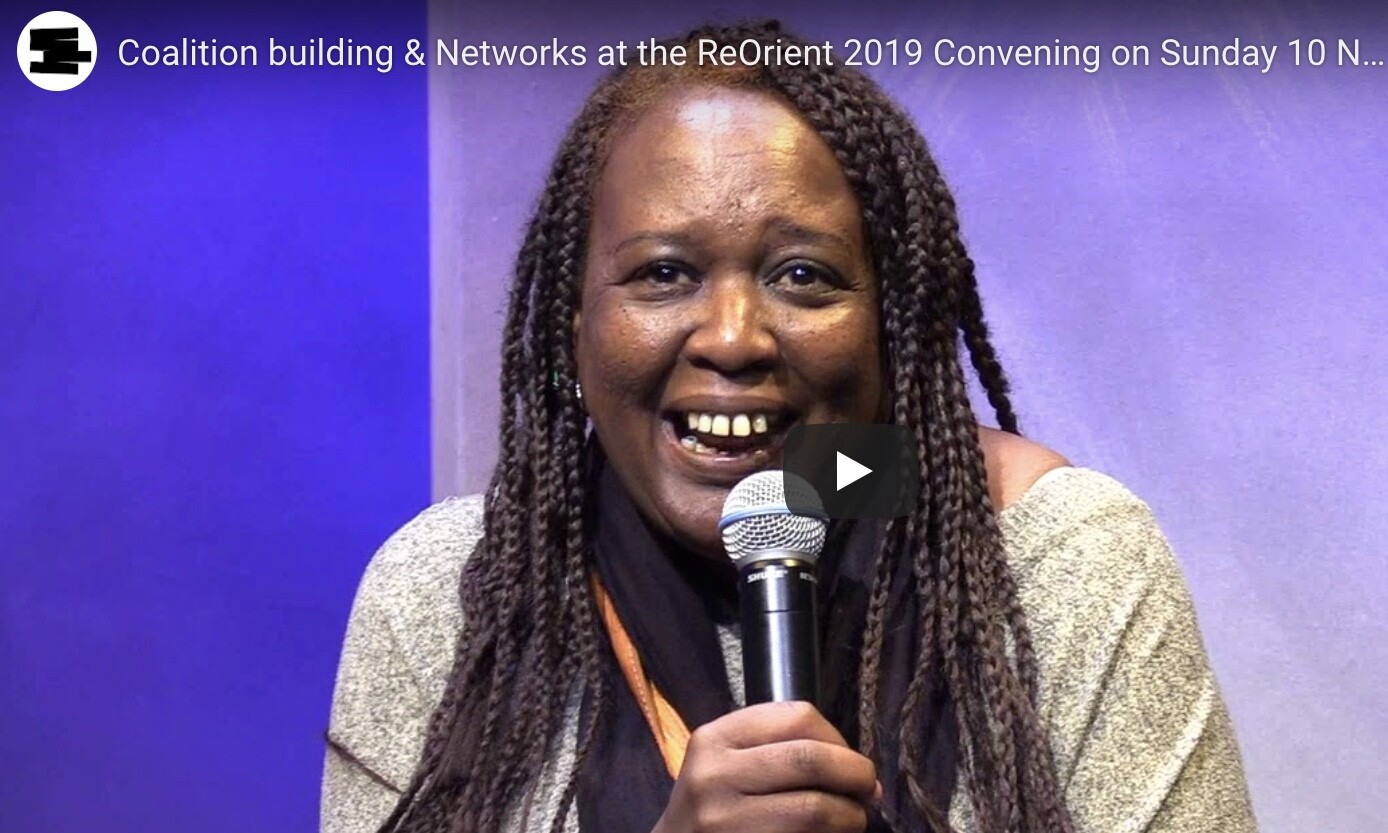Visibility, Dialogue, and Representation
Day one opened with an overview of the weekend, facilitated by Yeghiazarian, and centered on how we could begin to build a MENASA theatre artists coalition. This forum contextualized our current efforts to organize and allowed us to discuss strategy on what we learned in the survey and the primary goals identified. On top of this, the floor was open to all attendees to ask questions and share ideas around making our work more visible on stages in the United States.
The first conversation was titled “More MENA Plays on US Stages.” “The struggle to be well represented in the collective stories a nation tells about itself and its people is a matter of survival,” said El Guindi. “If you don’t often appear in these collective stories then you as an individual, and as a group, are non-entities.” As he pointed out, the lack of representation or misinterpretation conveys a message in itself. “If other marginalized groups struggled to get their foot in the door,” he noted, “we [MENASA artists] were ghosts in the room. We were unnamed, passed over, or erased.”
After an initial briefing on the subject by co-presenters Yeghiazarian and Kate Moore Heaney, who is also part of the steering committee and is the artistic producer of New York’s Noor Theatre, the community was invited to break into smaller groups to explore what strategies could be identified to bring MENASA artists center stage. Ideas included bringing awareness to our work by inviting theatre critics into the creative process, developing more key relationships with artistic directors at regional theatres to impact season planning, developing new voices by creating more MENASA writer workshops, and supporting avenues that help embrace cultural consultancy for our stories—a frequently named deterrent for why theatres are wary of producing our work.
Next, Roberta Levitow, co-founder and director of Theatre Without Borders, led a roundtable conversation called “Artistic and Administrative Mentorship in the MENA Community.” This session began with an intergenerational conversation with eight leading artists who shared their personal insights in the field. It also provided an opportunity to articulate ways in which the Middle Eastern landscape in theatre is evolving and continued strategies for increasing the dialogue between established and emerging MENASA artists.
“If other marginalized groups struggled to get their foot in the door,” [El Guindi] noted, “we [MENASA artists] were ghosts in the room.”
Later on, we gathered for a conversation titled “MENA in the Academy: How Can Academics and Practitioners Partner to Increase MENA Productions and Publications in Academia?” organized by Coray and Najjar, and facilitated by Roberto Varea, director of theatre at University of San Francisco. In the traditional university theatre system, there has been little room for MENASA playwrights in the United States canon, leading to a lack of representation of MENASA writers, directors, actors, and designers. Some questions this panel explored were: Why aren’t our playwrights regularly taught in university curricula? Why aren’t more academic theatre programs including our works in their seasons? How can theatre and performance studies scholars create more books, essays, dissertations, and other publications focused on our work?
As we wrestled to find answers to these questions, Debórah Eliezer, a steering committee member and theatremaker with Iraqi, Israeli, and American roots, shared her sentiments. “Our story is part of the fabric of the American narrative. As refugees, cultural hybrids, and United States–born citizens, we all turn our gaze to the East to help define our identity,” she said. “What is it to claim this place as MENA-identified? How are theatremakers uniquely qualified to forge alliances using our art?” This was one of our hopes for the convening—that the questions we asked would inspire deeper questions within us.
In terms of how to define the organization, each breakout group wrote a list of priorities for what they would like to see from it. Ideas included how the organization should embody an antiracist structure, ways we could recognize colonial structures and white supremacy in American theatre, and ways we should work to address and dismantle these systems and their impacts both within our community and outside of it.
Finally, steering committee members Leila Buck, a Lebanese American playwright, actor, and educator, and Tracy Francis, an Egyptian American director and artistic producer of Boom Arts, led a conversation called Naming & Defining Our Coalition. As we had spent so much time building out our strategies, we knew we needed a name to call the organizing group that would lead us forward. What name would we claim and how would it impact our connection and representation? The term “Middle Eastern” has long been considered problematic as it stems from a colonial placement of Europe at the center of the world. And yet it has become the most commonly used term to describe our community. Did we want to name ourselves by region, culture, tradition, or other shared connections? As we brainstormed, we also questioned who was being excluded.
How can we define our complex relationships to culture and geography (…) while still advocating, supporting, and illuminating a marginalized community of artists?
A Call to Action
The weekend was full of deeply inspiring conversations and shared discoveries, and yet we were left with more questions than answers. Notably: How can we define our complex relationships to culture and geography, especially within a United States–based context, while still advocating, supporting, and illuminating a marginalized community of artists?
At the end of the convening, members of the steering committee gathered to synthesize the discoveries into a call to action for this new organization. We identified options for naming our group and made a plan to invite the broader community to weigh in on our working draft with next steps. By the end of the day, the steering committee worked to begin the process of identifying ourselves (broadly and inclusively) and drafted a mission statement to share for feedback with the greater community.
Proposed Mission Statement
Our vision is to amplify our voices, increase our access to resources, and impact/expand how stories from and about our communities are told on stages in the United States. We do this through community building, professional development, and advocacy.
Who We Are
We are an alliance of theater makers working in the United States with roots in Southwest Asia, North Africa, Central Asia, the Caucasus, parts of the Mediterranean, and our diasporic communities. We broadly and inclusively embrace a multiplicity of ethnicities, traditions, languages, and faiths. We are committed to honoring our differences, recognizing our interconnectedness, and working together.
We welcome theater makers of all disciplines and practices, from traditional to contemporary.
We include and welcome people of all races, ages, abilities, sexual orientations, genders, gender identities, socioeconomic statuses, citizenship statuses, and religions. We are committed to antiracist decolonizing practices.





Comments
The article is just the start of the conversation—we want to know what you think about this subject, too! HowlRound is a space for knowledge-sharing, and we welcome spirited, thoughtful, and on-topic dialogue. Find our full comments policy here